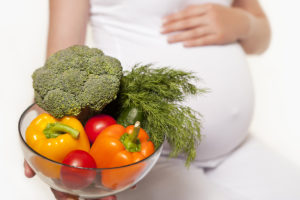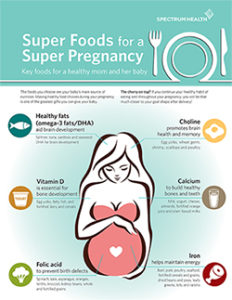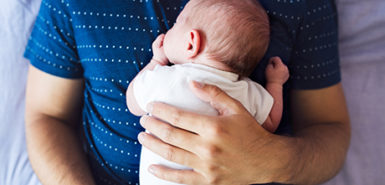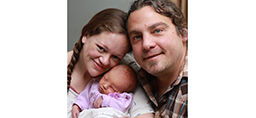
You are what you eat, as the saying goes.
But when you’re pregnant, add this line: Your baby becomes what you eat.
Sure, prenatal vitamins can help you get the nutrients you need. But eating the right food is always better, said Jill Graybill, RD, a dietitian with Spectrum Health Healthier Communities.
“There are compounds in food we haven’t discovered yet that work synergistically with vitamins to help you absorb all of the nutrients,” said Graybill, a mother of three.
“For example, an orange has vitamin C,” she said. “And it also has other characteristics that improve vitamin C absorption.”
So don’t depend on vitamins alone.
When should you start eating the right foods? Before you become pregnant. And because surprises happen, women of childbearing age are wise to embrace healthy eating habits all the time.
‘Give yourself grace’
Registered dietitian Jessica Corwin knows all about the ups and downs of healthy eating. She’s currently expecting her third baby, and she had all-day morning sickness until her 25th week.
It’s important to recognize your daily pattern, Corwin said, and then eat what you can. Her tips:
- Add spinach to a morning smoothie. “That checks leafy greens off my list. You get busy and don’t always have time to sit down for a salad,” Corwin said. She makes them in bulk, then freezes them in Mason jars she got from her grandma.
- Keep nutritious foods handy, so when you’re feeling OK you can eat healthy without much effort. Corwin, for example, keeps hard-boiled eggs in her refrigerator and then douses them with mustard to fulfill her cravings.
- Make no-bake cookies using chia seeds, oats, flax and peanut butter, freeze them, then eat one when you need an energy boost.
- Drink plenty of water to avoid dehydration, especially on hot summer days. If that doesn’t taste good, try adding lemon juice or fruit juice to sparkling water.
When all else fails? Remind yourself that it will all work out and, eventually, you will feel better.
“Just give yourself grace,” Corwin said. “There were some days I couldn’t get down any vegetables or carbs. When you can’t eat, just be sure to take prenatal vitamins and folic acid and try to get through it.”
Key nutrients include:
- Folic acid. The likelihood of birth defects can be reduced with folic acid. You’ll find it in green leafy vegetables—think kale—and in lentils, kidney beans and whole grains.
- Healthy fats and DHA. A baby’s brain develops quickly, especially in the third trimester, and healthy brain development depends on getting enough choline and DHA. “The best sources come from the sea, like salmon, tuna and seaweed,” Graybill said.
- Vitamin D and calcium. “Babies will be born with good bones, but if you’re not eating enough calcium, babies get it from mom,” Graybill said. “So to protect yourself, you need that calcium.” Aim for three servings of dairy a day, or get your calcium from fortified orange juice or plant-based milk.
- Iron. Remember to get plenty of iron, which will help maintain your energy. You’ll find it in meat, fortified cereals, dried bean and leafy greens.
Some foods should be avoided, such as alcohol, unpasteurized foods (check the label on soft cheeses), deli meat (heat it to a safe temperature) and fish that contains high levels of mercury (orange roughy, tilefish, swordfish, shark, and king mackerel).
Eating for 1.2
Think you’re eating for two? Think again.
When you’re pregnant, you’re actually eating for about 1.2 people, according to Spectrum Health Healthier Communities dietitian Jessica Corwin, MPH, RDN.
Pregnant women need to add roughly 300 extra calories per day to their normal diet during their second and third trimesters, and about 450 extra calories per day after delivery if they are able to exclusively breastfeed.
“That’s like a little mini-meal,” Corwin said. “Instead of using those calories to squeeze in ice cream every day, think of how to fill in the nutrient gaps.”
Some good choices: an apple with peanut butter; veggies and hummus; or half a peanut butter and jelly sandwich on whole grain bread.

Remember, however, that gaining too much weight can lead to complications during pregnancy and delivery. It can also make it harder to get back into shape later.
“Some people think of pregnancy as ‘hall passes’ for eating as much as you want,” Graybill said. “It’s better just to eat what you need. You need to monitor yourself.”
Expecting multiples? Then the rules change a bit, according to Graybill, who gave birth to twins five years ago.
“The babies require so much and the requirements are so much higher that you’ll eat double to triple the extra nutrients,” she said. “It’s like an extra job just to eat the right amount and help grow those babies.”
 /a>
/a>
 /a>
/a>
 /a>
/a>